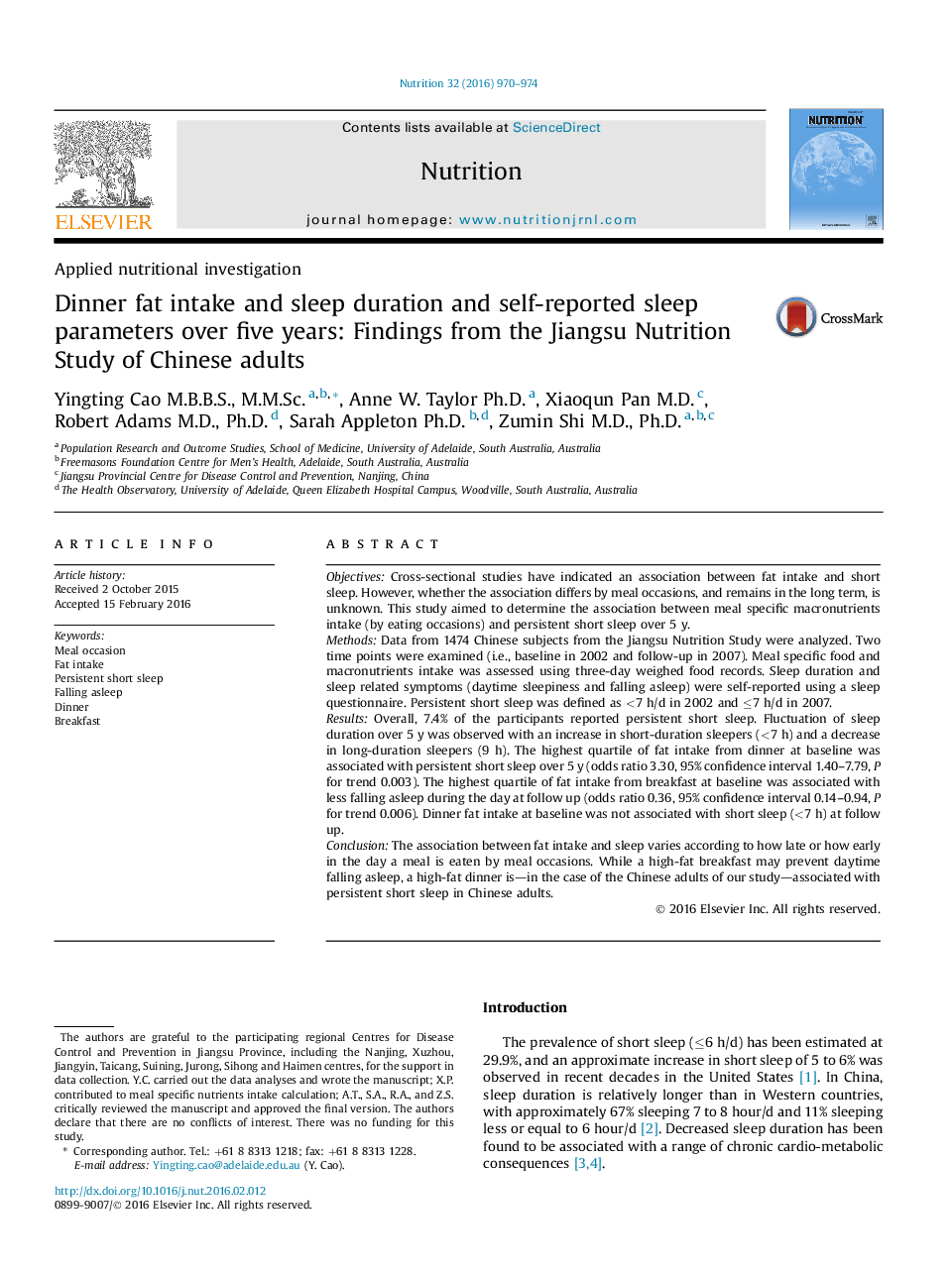| کد مقاله | کد نشریه | سال انتشار | مقاله انگلیسی | نسخه تمام متن |
|---|---|---|---|---|
| 3276099 | 1208528 | 2016 | 5 صفحه PDF | دانلود رایگان |
• High-fat dinner intake was positively associated with persistent short sleep duration in Chinese adults.
• High-fat breakfast intake was inversely associated with falling asleep at day time.
• Fluctuation of sleep duration over 5 y was observed with an increase in short sleepers (<7 h) and a decrease in long sleepers (≥9 h).
ObjectivesCross-sectional studies have indicated an association between fat intake and short sleep. However, whether the association differs by meal occasions, and remains in the long term, is unknown. This study aimed to determine the association between meal specific macronutrients intake (by eating occasions) and persistent short sleep over 5 y.MethodsData from 1474 Chinese subjects from the Jiangsu Nutrition Study were analyzed. Two time points were examined (i.e., baseline in 2002 and follow-up in 2007). Meal specific food and macronutrients intake was assessed using three-day weighed food records. Sleep duration and sleep related symptoms (daytime sleepiness and falling asleep) were self-reported using a sleep questionnaire. Persistent short sleep was defined as <7 h/d in 2002 and ≤7 h/d in 2007.ResultsOverall, 7.4% of the participants reported persistent short sleep. Fluctuation of sleep duration over 5 y was observed with an increase in short-duration sleepers (<7 h) and a decrease in long-duration sleepers (9 h). The highest quartile of fat intake from dinner at baseline was associated with persistent short sleep over 5 y (odds ratio 3.30, 95% confidence interval 1.40–7.79, P for trend 0.003). The highest quartile of fat intake from breakfast at baseline was associated with less falling asleep during the day at follow up (odds ratio 0.36, 95% confidence interval 0.14–0.94, P for trend 0.006). Dinner fat intake at baseline was not associated with short sleep (<7 h) at follow up.ConclusionThe association between fat intake and sleep varies according to how late or how early in the day a meal is eaten by meal occasions. While a high-fat breakfast may prevent daytime falling asleep, a high-fat dinner is—in the case of the Chinese adults of our study—associated with persistent short sleep in Chinese adults.
Journal: Nutrition - Volume 32, Issue 9, September 2016, Pages 970–974
